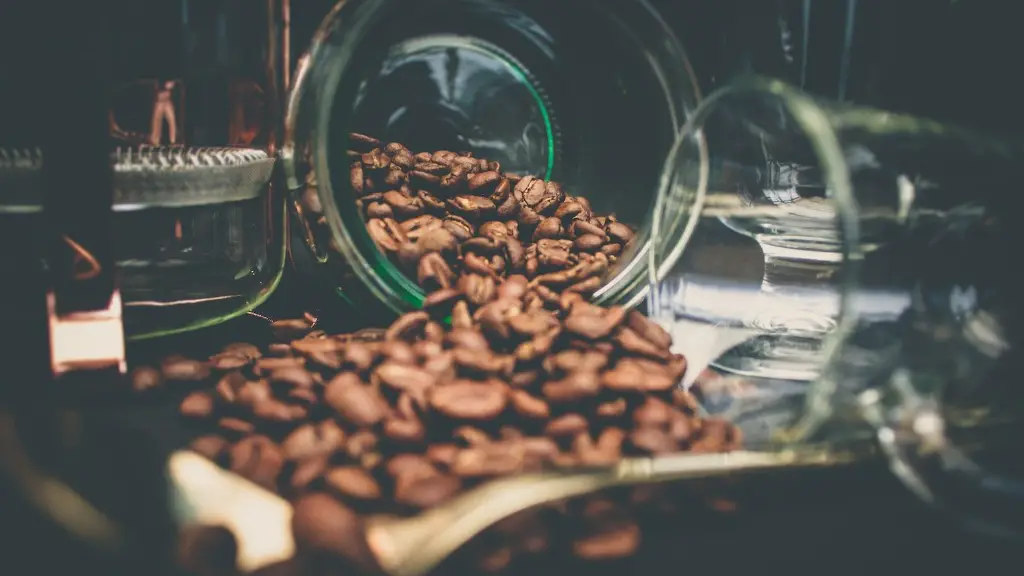Background
Intermittent fasting is a dietary approach that involves cycling periods of eating and fasting over a certain period of time. Typically, someone following an intermittent fasting diet will fast for 16 hours a day and then eat normally during the remaining 8. The idea behind this diet is that it reduces your overall calorie intake and thus encourages weight loss. Black coffee is permitted on the diet, but does it really have a positive, or even a neutral effect?
Pros and Cons
The pros of drinking black coffee during an intermittent fasting diet are related to its appetite-suppressing effects. Studies have shown that caffeine can be an effective appetite suppressant and this might help someone who is following the diet to reduce their urge to eat during their eating window. The cons, however, are related to the fact that coffee is a diuretic and can lead to increased rate of dehydration. For that reason, it is important to ensure that you drink plenty of water throughout the day if you are going to be drinking coffee during intermittent fasting.
Scientific Data & Perspective
When it comes to scientific data on the effect of black coffee during intermittent fasting, a few studies have been conducted. The results are somewhat mixed, with some studies showing that it can have a positive effect and others indicating no real effect either way. The most prominent study was conducted by researchers at the University of Birmingham, which found that consuming black coffee during an intermittent fasting diet led to no difference in body weight at the end of the study compared to those who did not consume coffee.
For those who are looking for an expert opinion on the matter, the general consensus is that black coffee can be consumed during intermittent fasting. Most experts agree that the main factor to consider is to ensure that you are not over-consuming caffeine, as this could have a negative effect on your overall health. Additionally, it is important to ensure that you are drinking plenty of water to minimize the dehydration caused by the diuretic effects of caffeine.
Risk of Caffeine Addiction
One risk factor when it comes to consuming black coffee during intermittent fasting is the risk of developing a caffeine addiction. As with any habit, the more a person consumes caffeine, the more likely they are to become reliant on it. This can lead to difficult withdrawal symptoms when the person stops consuming caffeine and could be disruptive to the overall routine of the intermittent fasting diet.
With this in mind, it is important to keep in mind that consuming large amounts of caffeine during intermittent fasting can be risky. If you are going to use coffee as a dietary aid, it is important to keep track of your daily intake and ensure that you are not over-consuming caffeine on a regular basis. Additionally, because of the diuretic effects of caffeine, it is important to stay well hydrated if you do choose to consume black coffee during your fasting period.
Alternative Options
In addition to black coffee, there are many other options to choose from when it comes to incorporating beverages into your intermittent fasting regimen. Green tea is one option as it contains much less caffeine than coffee and has a host of other health benefits. Additionally, there are many herbal teas on the market that offer various health benefits and can be a great way to start your day or break up your fasting time.
Fruit and vegetable juices are another option and can be a great way to get the vital nutrients and minerals that your body needs. Additionally, alcohol is not recommended during intermittent fasting but some experts suggest that a small amount of wine or beer can help to break up the fasting period without having too much of a negative effect.
Health Benefits
It is important to remember that the primary benefit of intermittent fasting is the overall health benefits. Studies have shown that intermittent fasting can improve cardiovascular health, increase insulin sensitivity, reduce inflammation, and even boost cognitive function. Additionally, intermittent fasting can help to reduce the risk of various chronic diseases, such as diabetes and obesity.
In general, it is important to ensure that your diet is well balanced in order to gain the maximum benefit from intermittent fasting. This includes not only the food you eat but also the beverages you consume. As with any diet, if you are going to incorporate beverages into your intermittent fasting regimen, it is important to ensure that they are healthy and contain beneficial nutrients and minerals.
Final Thoughts
In conclusion, there are both pros and cons to drinking black coffee during an intermittent fasting diet. While the appetite-suppressing effects of caffeine can be beneficial, it is important to ensure that you are not over-consuming caffeine or becoming reliant on it. Additionally, it is important to ensure that you are striking a balance between black coffee and other healthier beverages during your fasting period to get the most out of your diet.


